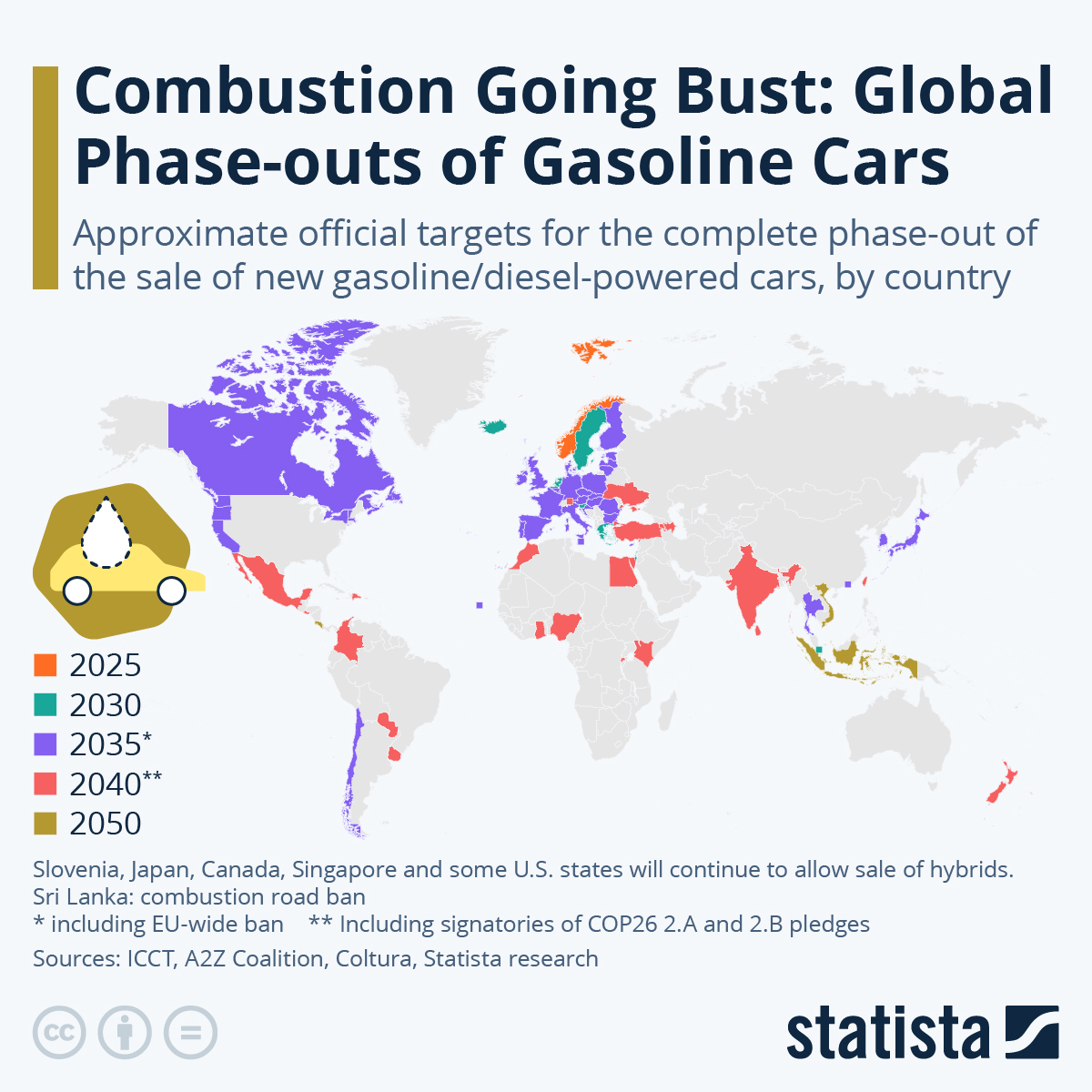As of 2024, 60 countries and territories around the world had set targets, signed pledges or announced plans to phase out gasoline and diesel cars by a concrete date - a move that climate scientists call absolutely necessary and that is seen as vital for countries to achieve net zero carbon emissions. The earliest phase-out of this kind is set to happen soon in Norway, which has been an electric mobility pioneer. Relevant announcements for the middle of the century followed more recently from the likes of Vietnam and Indonesia, according to Coltura.
The area with most bans in preparation is Europe, where the European Union approved a law in early 2023 that will outlaw the sale of gasoline engine cars in its member states from 2035. However, a lot of back and forth has since ensued. For Germany (as well as for Italy, Romania, Bulgaria, the Czech Republic and Hungary), the bill set a first deadline for the sale of gasoline-powered cars. In a move that CNN called extraordinary, the country known for its car industry spearheaded an initiative pressing for a loophole for synthetic fuels before the final adoption of the new rules.
Several European Union countries had already embraced the phase-out of gasoline cars previously and have set even tighter deadlines. The Netherlands, Belgium's Flanders region, Sweden, Greece and Slovenia are all looking to end the sale of gas-powered cars even earlier, between 2029 and 2031. The only country in the world beating this is Norway, where around 80 percent of new cars sold are already fully electric and 100 percent are scheduled to be in 2025.
Similar to the situation in the EU, gasoline car phase-outs caused disagreements among U.S. states when California in 2022 set a phase-out date for new sales of these vehicles, also for 2035. While 17 states had previously tied their vehicle standards to California's under the Federal Clean Air Act, only Washington, Oregon, Massachusetts, New York and Vermont have went along with California's decision while Connecticut and Delaware pulled out at the last minute. While hybrids were initially expected to be phased out as well, some advanced hybrids with large battery power will now be allowed in participating states. Other nations treating hybrids favorably in their phase-outs are Canada, Slovenia, Singapore and Japan, but most nations want them gone also by the time their ban date comes up.
Asian nation Sri Lanka has been setting the toughest goals of any country, issuing not just a phase-out of new gasoline car sales, but a full road ban for combustion engine cars, tuk-tuks and motorcycles by 2040. The country has in the recent past already attracted international attention for issuing sweeping legislation whose implementation proved problematic. For some smaller countries without their own carmakers or their subsidiaries, a gas car phase-out can actually be easier to implement in some ways. Cape Verde, which along with several other nations around the globe signed the COP26 declaration to ban the sale of new combustion engine cars by 2040, internally set the goal to achieve this feat even earlier, by 2035. To do so, it would merely have to ban the import of gas-powered cars close to that date.





















